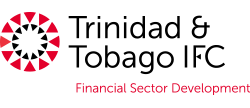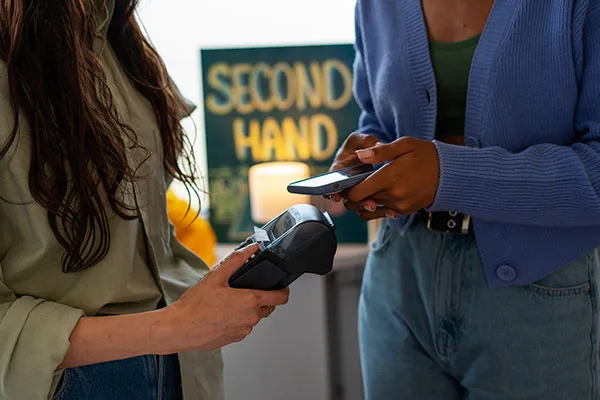The notion of a lack of privacy in a cashless economy is a valid concern; however, this transition to is not a one-size-fits-all approach. Each country defines its path based on specific needs and priorities. The goal is to leverage technology to enhance security, efficiency, and financial inclusion while addressing privacy concerns. For Trinidad and Tobago, a cashless economy is one where citizens are given greater autonomy to choose how they make and receive payments, not limiting them to cash payments only but allowing them to explore a full spectrum of payment methods, including cashless payment methods like cards, online payments, mobile wallets, and e-money.
Data privacy and security concerns have long been important issues in the context of transactions, whether they involve cash or non-cash methods. As payment systems evolve, financial institutions, payment service providers, businesses, customers, and regulators must ensure compliance with growing security measures, practices, and regulations to enhance protection in all types of transactions.
Data from the Trinidad and Tobago International Financial Centre’s (TTIFC) National Financial Inclusion Survey Report (2023) suggest that privacy concerns are relevant to adopting digital financial services in Trinidad and Tobago. The widespread reluctance to accept digital payments indicates a potential distrust of formal financial institutions and digital payment systems.
According to this survey, 86% of micro, small, and medium enterprises (MSMEs) operating within households do not accept digital payments. Furthermore, 56% of individuals who hold bank accounts lack the knowledge to own and effectively use mobile banking apps. Concerns about the privacy of financial information also persist, with many individuals hesitant to use online payment methods because they do not want their transactions to be tracked.
When probed further, participants of the survey shared that “I know nothing, or know very little, about online payments I don’t have access to the internet; therefore I can’t access online payment portals. I don’t have required means for online payments (…online bank access and/or credit card). I don’t think online payments are secure. Paying in cash is much easier than paying on e-portals.”
Concerns about privacy and trust in digital payments highlight the need to better understand essential factors in payment services, including user security, information protection, and payment monitoring and recording.
User Security and Payment Technology
To address this concern, it is essential to understand data privacy in the context of digital payments and why it is crucial. Let’s start with security. Like your personal identification number (PIN) used for debit and credit card transactions, security standards are crucial in ensuring that users are protected when using cashless payment methods, such as mobile payments, point-of-sale transactions, or ATM withdrawals and deposits. These transactions can be made through various devices and platforms, including mobile phones, laptops, and e-commerce websites. Without adequate security measures such as your PIN and password and additional protections like multi-factor authentication (MFA), these services cannot be safely utilised, increasing the likelihood of exposure to significant risks, such as fraud.
Information Protection
Customer information is a crucial element for accessing various services, including signing up for a mobile data plan, applying for a debit or credit card, loan product or other services and even marketing promotions. Both customers and businesses—specifically financial institutions and payment service providers in the context of this article—are responsible for managing personally identifiable information (PII). Your PII refers to any information that can identify you (or any individual), directly or in combination with other data. Examples of PII include your legal name (first, last, and middle names), date of birth, gender, address, occupation, government-issued ID numbers (such as passport numbers, national IDs, and driver’s licenses), financial account numbers, credit card information (like card number, CVV, and expiration date), as well as authentication credentials, including passwords and usernames.
To enhance consumer protection, financial institutions are governed by international regulations and conventions that prioritise the proper management and storage of customer information. These regulations are built on essential privacy principles, including purpose limitations, consent requirements, accuracy, security safeguards, and individual access rights. By ensuring explicit consent for the processing of sensitive personal information, such as financial records, consumers gain valuable protection against unauthorised access. It’s also important for customers to actively understand their obligations regarding their personally identifiable information, fostering a safer and more informed financial environment.
Tracking Payments
All transactions, whether cash or digital, must be recorded to protect consumers and businesses. The way we track payments has evolved over the years, transitioning from traditional bank books to printed and digital statements, mobile banking apps, online payment platforms, and e-wallets. Common cashless payment methods include Automated Clearing House (ACH) and money wire transfers, which allow both senders and recipients to initiate and confirm the transfer of funds from one account to another, locally and internationally. While cash transactions can be monitored through receipts, visibility and traceability are often limited compared to digital payments. This can leave cash transactions more vulnerable to theft, loss, and fraudulent activities. Additionally, the risk of counterfeit currency further complicates the monitoring and security of cash-based transactions.
Education is a key enabler in addressing concerns about digital payments.
Education will be essential in addressing these concerns, as many people feel that information about digital payment methods is neither readily available nor accessible. To encourage more widespread use of these increasingly common services, information about financial services and products must be presented in simple, easy-to-understand formats.
The Trinidad and Tobago International Financial Centre (TTIFC) focuses on improving education and accessibility as part of its National Financial Inclusion Strategy Roadmap. This roadmap outlines essential policy and programme interventions aimed at removing barriers that prevent individuals and businesses with various needs from accessing affordable and easily understandable financial services. In particular, MSMEs, youth, women, senior citizens, and differently-abled persons are among the key stakeholders who stand to benefit from learning more about how to access and use formal financial services and cashless payment methods as resources to enhance their financial resilience and quality of life.
Actions we can take now
T&T’s cashless economy is one where everyone has the ability to choose between using cash and cashless payment methods to engage in the digital economy. In this transition, all stakeholders—governments, financial services, financial technology (FinTech) providers, and citizens—play a vital role in driving this progress. We can take immediate steps to:
- Simplify the language used to explain financial services and terms and conditions, so that customers can feel more confident that they understand their obligations.
- Innovate policies and programmes to boost digital financial education nationwide to empower more underserved communities to start using more cashless payment options and financial services.
- Embrace financial technology (FinTech) to spur new market innovation in the financial sector to meet the needs of more underserved communities.
- Take power into our own hands to learn more about the financial services, FinTech and digital payment options that are available in T&T.
Let’s keep the conversation going about cashless payments as T&T embraces our definition of a cashless society.

